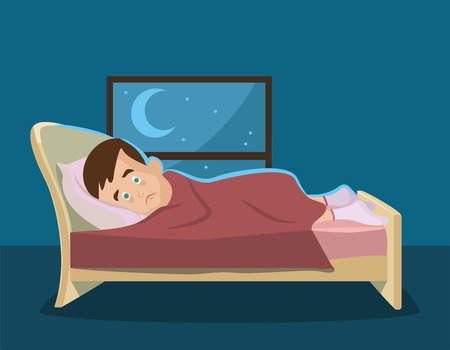The benefits of a good night’s sleep are widely known – from a glowing complexion to improved mood and more energy during the day.
And yet, many face difficulties getting a good rest each night, with one in four Singaporeans not getting enough sleep¹.
It’s not just young children and heavy workloads that are getting in the way of us achieving the recommended seven hours a night.

Philips’ global sleep study found that insomnia (26%) and snoring (21%) are universal issues that impact sleep for more than one in five adults².
And while many are aware of the negative impacts of lack of sleep, Philips’ study reveals that people tend to feel guiltier about not exercising or about eating unhealthily than they do about not getting enough rest.
Research also shows that many of us fall short on quality of sleep too.
According to a local study, as many as one in three Singaporeans suffer from a little-known medical condition called obstructive sleep apnea (OSA)³, a potentially dangerous sleep disorder where a person’s breathing stops and starts repeatedly while they sleep, interrupting sleep quality.
If left untreated, sleep apnea can contribute to more serious health conditions such as heart attacks, glaucoma, diabetes and cancer, and yet most Singaporeans who suffer from it don’t even know about it.
Snoring is a common side-effect – so if your partner’s snoring is interrupting your shut-eye, it could be time to book them in for a check-up.
To celebrate World Sleep Day, Philips shares everything you need to know about tackling snoring spouses and getting a night of better quality sleep.

Snoring spouse? Philips says it could be the sign of a more serious condition
“A source of argument for many couples, snoring can disturb not only the snorer but also their bed partner, reaching over 60 decibels – almost as loud as a vacuum cleaner!” says a Philips sleep expert.
“Whilst many block it out with earplugs, loud and un-rhythmic snoring can indicate blockage and could be a sign of something much more serious. We would highly recommend anyone in this situation to check in with their GP.”
So, what is sleep apnea?
“Obstructive sleep apnea is a common, yet often underdiagnosed, sleep disorder. It occurs when a person’s upper airway becomes blocked repeatedly during sleep, reducing or completely stopping airflow. If left untreated, sleep apnea can contribute to serious medical conditions including heart attacks, glaucoma, diabetes, cancer, and cognitive and behavioural disorders.”
Its not just a ‘guy thing’
“Snoring is not just a ‘guy thing’, and nor is sleep apnea,” says Philips’ spokesperson. “Whilst its more common in men than women, ladies can still develop it, particularly as they get older.”
“And, although the risk of developing it increases with age, children are not immune either; if your children regularly make snorting or gasping sounds while they sleep, consider seeing your GP.”
➡️ Related Read: My Child Snores, Should I Be Worried?
Time for a check-up
Philips’ sleep expert recommends that “if you or your spouse experience loud or unnatural snoring, you should get this checked out by a GP or sleep specialist. Diagnosing the condition can also be easily done with home-test kits in the patient’s home.”
Tips for a quality night’s sleep
Philips suggests the following tips and tricks for seven hours of quality sleep every night.

1. Digital detox
Using electronics just before you sleep can keep you awake because bright light can throw the body’s biological clock off. Put away your phone and screens at least half an hour before bedtime, and preferably sleep without them by your side.
➡️ Related Read: How a Mum Survived a 72-hour Digital Detox
2. Get into a routine
Philips’ global sleep survey found that less than half of adults maintain a regular bedtime schedule and less than one in three feel guilty about not maintaining good sleeping habits.
And yet having a consistent, predictable bedtime routine can help you fall asleep quicker and improve your sleep quality. Try to make sleep just as important as sticking to an exercise or eating regime, and keep close to the same bedtime every night.
3. Create a soothing atmosphere
A cool, quiet and dark room is best for quality sleep. Playing soothing music and turning down the room temperature can help calm the senses and create a peaceful sleeping environment. Find what works for you, and make sure you avoid using the bedroom for daytime activities like work.
➡️ Related Read: Fengshui in Your Bedroom
4. Rule out any sleep issues
Sleep disorders affect a large number of men, women and even children in Singapore and yet they are rarely discussed or treated as seriously as they should be. If you regularly have difficulty getting a good night’s sleep, visit a GP or sleep specialist for a check-up to discuss the possibility of a home test.
This article was contributed by Royal Philips.
References:
1. SingHealth Polyclinics, Newsroom Year 2017: ‘Singaporeans not clocking enough sleep, study finds (The Straits Times, 11 January 2017, Pg B7)’.
2. Philips global sleep survey, “Better Sleep, Better Health. A Global Look at Why We’re Still Falling Short on Sleep”: Philips.com/WorldSleepDay
3. JurongHealth, Media Release: One in three Singaporeans have moderate to severe sleep apnea and one in 10 Singaporeans suffer from severe sleep apnea: Study, 17 March 2016.
* * * * *
Like what you see here? Get parenting tips and stories straight to your inbox! Join our mailing list here.
Want to be heard 👂 and seen 👀 by over 100,000 parents in Singapore? We can help! Leave your contact here and we’ll be in touch.



























































